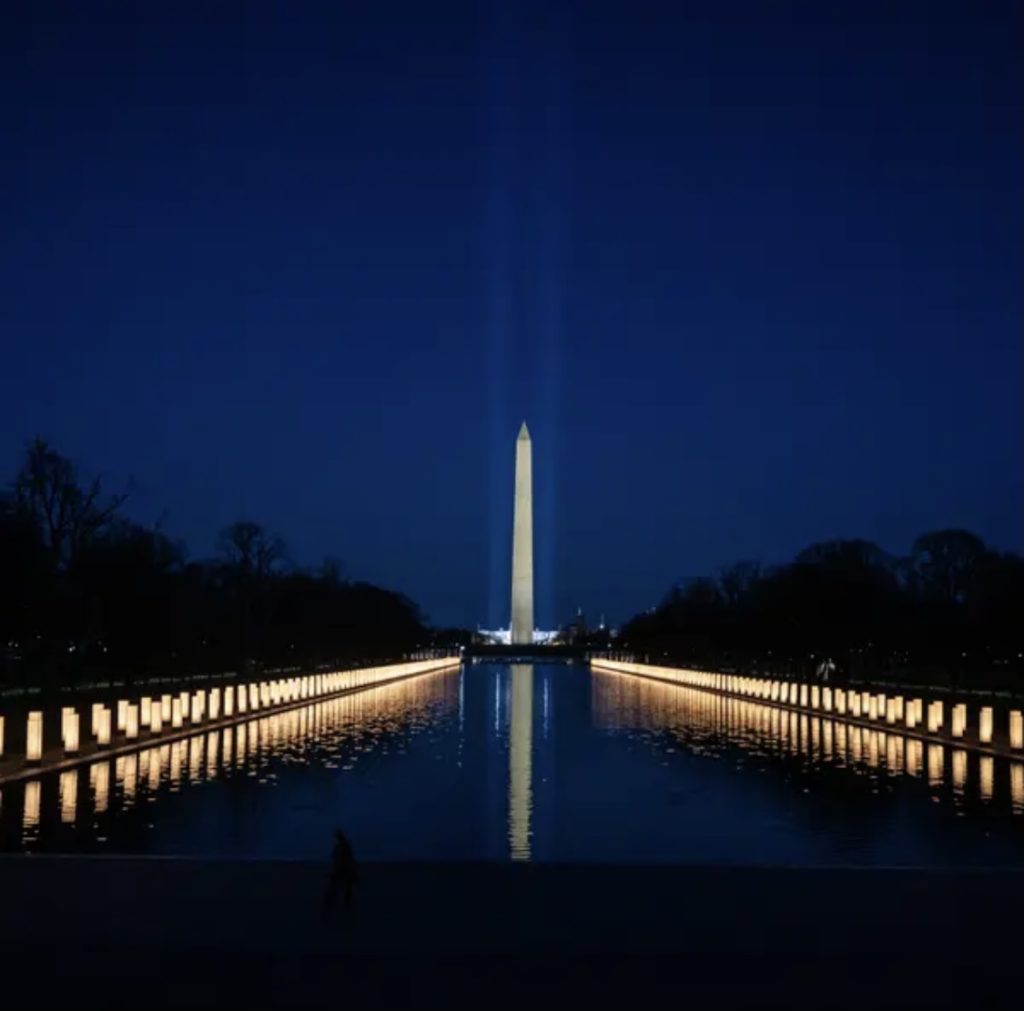
A few days ago, our nation marked the tragic milestone of 500,000 loved ones who have died of COVID. We have heard that we need to take time to remember. Remembering presupposes forgetting. The reality, however, is that we haven’t forgotten. We live daily with the losses of this past year. How can we forget the spouse, significant other, parent, grandparent, child, aunt, uncle, friend, neighbor, coworker? How can we forget that they died alone? How can we forget the funerals we couldn’t have, the visits we couldn’t make, the hands we couldn’t hold, the tears we couldn’t wipe? Many of those who passed away from non-COVID causes were still isolated from loved ones because of COVID.
For those who haven’t lost a loved one to or during COVID, the fear of loss is always terrifyingly near; that too is a kind of loss. There are other losses as well that make it impossible to forget: the loss of jobs, something as simple as a hug, the ability to see the face behind the voice, a handshake, kids in school, mental health, security, a way of life-the list is endless. We haven’t forgotten, but we need this time to remember.
This national call to “remember” allows us to grieve as a nation and as a community. Not because we have forgotten, but because there is healing and comfort in remembering together. Even while we are physically apart, together, we allow ourselves a moment to dwell under the weight of this collective loss. We take a moment as a community to journey to that suffocating place we call grief. We intentionally take time to see and share in the sorrow of others.
I have always found the story of Elijah after Mt. Carmel to be fascinating (1 Kings 19:5-9). Elijah is sad, scared, depressed, tired, exhausted. He can’t talk to God; he can’t pray; he can’t meditate on His word. All he can manage to do is sleep. God allows him to dwell in this emotional desert, and not only does God let him dwell here, He sustains him here. God sends an angel to wake him, to feed him, to let him sleep, to wake him again, to feed him again.
God is acquainted with our grief. He knows our sorrow. He allows us to dwell there under its gravity. When we like Elijah have nothing left to give and can’t find a prayer on our lips or faith in our hearts, God is with us in that darkness.
God did eventually call Elijah to a new day. We, too, will eventually rise to a new day, albeit with scars, losses, and voids, but today, we remember while not forgetting.
(Photo credit: Todd Heisler/The New York Times)